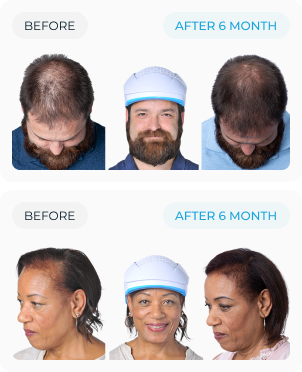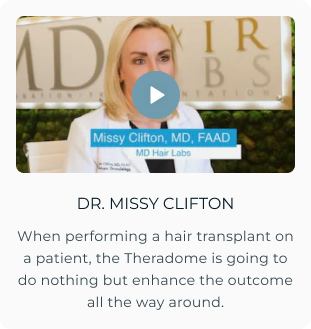Celiac disease doesn’t just mess with your digestion. It can also sabotage your scalp. While most people associate celiac with bloating, fatigue, and inconvenient grocery shopping, the connection between celiac disease and hair loss is very real — and often missed.
When gluten triggers immune dysfunction, your gut’s ability to absorb nutrients doesn’t just slow down—it can come to a screeching halt.
We’re talking iron, zinc, B12 — the heavy hitters of follicle function. And if that wasn’t enough, celiac also likes to tag-team with alopecia areata and other autoimmune disorders that love turning your follicles into targets.
So no — this isn’t just about hair “thinning with age” or needing a better shampoo. Celiac and hair thinning can go hand in hand, and understanding why is the first step in actually fixing it. Let’s get into the science, the symptoms, and what to do before your part widens more than your gluten-free pancake batter.
What is Celiac Disease?
Celiac disease is an autoimmune disorder where your body flips out every time gluten enters the system. Gluten — the protein found in wheat, barley, and rye — becomes public enemy number one. The immune system wages war, but instead of hitting the actual threat (which, spoiler alert: gluten isn’t), it torches the lining of the small intestine. Collateral damage? Nutrient absorption takes a nosedive. And what doesn't get absorbed? Iron. Zinc. Biotin. Vitamin D. Protein. You know, the very stuff your follicles would rather not live without.
Common symptoms include:
- Chronic digestive issues
- Fatigue
- Weight loss
- Brain fog
- Joint pain
- Skin rashes
- Nutrient deficiencies
- And yes — unexplained hair loss
Can Celiac Disease Lead to Hair Loss?
Hair loss isn’t typically the first symptom waving a red flag. But it’s one of the most under-recognized signs of systemic stress — and celiac disease and hair loss are far more entangled than people realize.
When your gut’s damaged, it can’t absorb the basic nutrients your hair needs to grow, survive, or shine. And if that wasn’t enough, your body’s chronic inflammation doesn’t stay politely in the intestines. It spills into your bloodstream, messes with hormone balance, and can trigger autoimmune hair loss like alopecia areata. The result is shedding, thinning, or full-on bald spots that get dismissed as “just stress.”
How Celiac Disease Can Lead to Hair Loss
This isn’t just about “gut health” in a vague wellness influencer way. When your intestinal villi get flattened from gluten exposure, it triggers a cascade of biological sabotage. Hair loss becomes the fallout.
1. Nutrient Deficiencies
Celiac disrupts your body’s ability to absorb essential nutrients — iron, zinc, vitamin D, and B12. These are non-negotiables for healthy hair. Without them, your follicles shift from “growth” mode to “shed and shut down” mode. It’s textbook telogen effluvium, but with a celiac twist. If you’ve got gluten intolerance related hair loss, check your micronutrient status before you panic about your genetics.
2. Autoimmune Connection
People with celiac don’t just get stuck with one autoimmune issue. They often collect others — and alopecia areata is a common addition. The same immune system that targets gluten can get trigger-happy and start attacking your hair follicles too. That’s not hair thinning — that’s follicle sabotage. When you combine celiac disease and alopecia areata, you’re looking at a double-barreled autoimmune situation that needs attention fast.
3. Inflammation and Stress on the Body
Chronic inflammation is a scalp killer. Celiac disease creates a sustained inflammatory state that affects hormones like cortisol, jacks up oxidative stress, and throws your entire hair cycle into chaos. Add physical stress from malnutrition and emotional stress from living with celiac, and you’ve got all the makings of gluten sensitivity hair loss — even in patients without full-blown celiac.
Types of Hair Loss Associated with Celiac Disease
-
Telogen Effluvium – widespread shedding due to nutritional shock
-
Alopecia Areata – autoimmune-driven bald patches
-
Diffuse Hair Thinning – chronic deficiency fallout
-
Stunted Hair Regrowth – poor nutrient support even after loss stops
How to Manage Hair Loss Caused by Celiac Disease
Once celiac is diagnosed, hair loss management starts by fixing what actually caused the problem — not just slapping a serum on the symptoms.
Gluten-Free Diet
The non-negotiable first step. Cutting gluten allows your gut to heal, villi to regenerate, and nutrient absorption to resume. Celiac disease and hair regrowth go hand-in-hand when the diet is clean and strict. Cheating “just once” can set you back weeks — or months.
Nutritional Support
Test for deficiencies — don’t guess. Supplementation with iron, zinc, biotin, and B-complex vitamins (especially B12) can fast-track recovery. No supplement will matter if gluten’s still in the picture, but with a clean gut? Game on.
Topical and Medical Hair Treatments
Support local hair regrowth using proven topical or non-invasive methods. Minoxidil can help keep follicles alive while your system rebalances. Laser phototherapy (like FDA-cleared LPT helmets) stimulates blood flow, improves scalp health, and extends the hair growth cycle — especially effective when paired with nutritional correction.
Can Hair Grow Back After Treating Celiac Disease?
Hair regrowth is absolutely possible — but it’s not instant. Once gluten is removed and nutrient absorption improves, follicles can re-enter the growth phase. But this takes time. Think months, not weeks. Younger patients, early diagnosis, and mild deficiencies usually recover faster. If autoimmune activity is at play (like alopecia areata), regrowth may require medical support and lifestyle adjustments. The earlier you address the root cause, the more follicles you save from permanent shutdown.
Conclusion
Yes, celiac disease can cause hair loss — both directly and indirectly. Nutrient malabsorption, autoimmune overlap, and chronic inflammation create the perfect storm for your hair to throw in the towel. But this is also one of the few forms of hair loss that’s highly manageable with the right approach. A strict gluten-free diet, medical diagnosis, and targeted support can stop the shedding, reboot your scalp health, and — with some patience — give your hair a fighting chance to come back.

























